Here is an interview with David Allen by the publisher of the Polish version of Getting Things Done.
Q: You developed the Getting Things Done Program because…
A: I had discovered that applying some rather simple techniques could have profound results, immediately, in people’s ability to focus, stay relaxed, and make positive progress in their work and lives
Q: What is the difference between GTD and normal task planning?
If you mean by “Normal task planning” that you make a list of things to do today, or this week, then the difference is that GTD recommends you keep track of every action that you might be able to take, plan as little as possible, and trust that you’ll make good intuitive decisions moment to moment from all your options. In other words, you need to remain flexible and open to all the new inputs and changes that are happening more and more frequently; and if you over-plan, it will get in your way.
Q: Order above all. That is the first rule of the GTD Program. What is the second one?
“Order above all” – not sure what that refers to (I never said it). There are not really any “rules” in GTD – only observations of principles. If you want to have a clear mind, you must capture externally whatever is keeping it from being clear, make executive decisions about what you’re committing to do about it, and park the results into some system that you can trust will reflect it back to you at the appropriate time.
Q: How soon after proper Program implementation could we see its first results?
Results happen immediately. As soon as you start capturing what’s on your mind, and as soon as you start deciding the next action required on them, it will lower stress, improve focus, and facilitate getting things done.
Q: In what order should we empty our “buckets” so that it would be most efficient – starting from the oldest tasks, the more important ones or the least important items?
All of your incoming “stuff” should be processed every 24-48 hours – doesn’t matter which ones you handle first. Then deciding which action to take, once your IN-baskets are empty, should depend on the combination of strategy, context, time, and energy available.
Q: What could be the percentage increase in efficiency in case of implementing GTD Program in the organization? Have you conducted appropriate studies?
No one has ever done a study of efficiency. Some surveys, however, have indicated that by applying GTD methods it can save 30-45 minutes of time a day.
Q: Is the system flexible, or is it necessary to abide strictly by the rules?
It’s not a system, but rather a systematic approach. Again, there are no rules. The basic principles are true – if you keep commitments in your psyche instead of some external system, you will reduce your clarity and effectiveness. That’s not a “rule” so much as it is an observation of reality.
Q: How to deal with urgent matters that disturb the work system?
Urgent matters ARE your work. Your system needs to be able to incorporate surprise and change.
Q: What to do if we have to carry out several equally important projects at the same time?
If they are truly of equal importance, then it doesn’t matter which one you work on. You can only do one thing at a time, no matter how many projects you have; Generally you are better off taking a project to completion before moving on to the next one. It is good to have all the next actions on all the projects available to pick from, and, again, one action may be easier to do at a certain time than some of the others, simply because of time, energy, and context you’re in.
Q: Does the GTD Program have any limitations, or is it applicable in any corporation, regardless of its size or business it is in?
GTD is simply how anything gets done, and the principles apply not just to any business but to any person in any aspect of their life. As soon as you have more than one thing to do, that you can’t finish the moment you think of it, then you can apply the GTD methods to increase your ability to manage what you’re doing well.


My summary:
Treat everything as urgent, so the system needs to be able to incorporate surprise and change.
Things to Consider: Combination of strategy, context, time, and energy available which increase your ability to manage what you’re doing well.
Brilliantly spoken David !
David:
Good overview. I have shared it with my key managers.
Dave
This is what happens when people who spend their entire life in academia and no experience of how the real world works.
Hi David,
I have two questions on the method:
While I agree that keeping things externally could reduce stress, are we not creating dependencies on external equipment, whether a paper based list or a PDA and so on? and trusting/using our memory less and less? will this not lead to diminished mental power?
also, we need to create backups for the equipment – incase the paper list is lost – or the pda is stolen.. and if those eventualities happen (without having backed up stuff), we might tend to just wander around like headless chicken… have people reported such instances to you?
but i think your observations are right on on the decisioning process.. i have seen that i rarely think and take conscious decisions.. and am mostly being driven by what has become urgent/comes up on top of my mind..
asking those questions and making those back-of-envelope decisions are some of the most important skills that I have started to do.. and thanks are due to you for teaching us that…
regds, suresh
Best Regards, Suresh
Hello Suresh,
GTD does not suggest you stop using your brain (hence losing mental power). It simply suggests using it for more strategic and creative thinking, rather than as a bad to do list manager.
Yes, people have reported losing their systems. Backup is a good idea if you have your attention on that as a concern.
The GTD Times Team
Great interview, thanks.